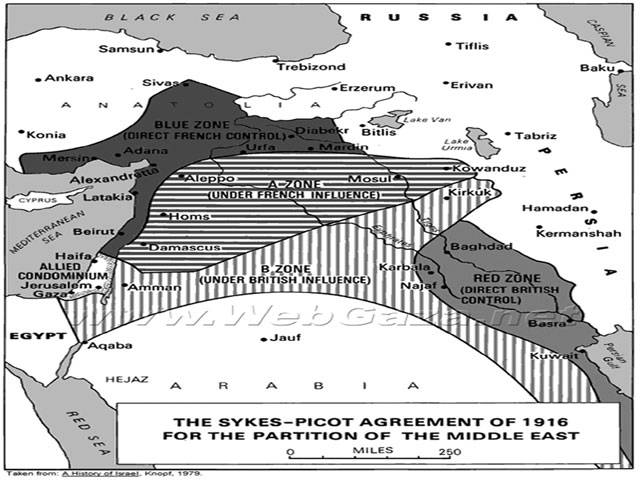“The patchwork political landscape of the
Arab world - the client monarchies, degenerated nationalist dictatorships, and the imperial
petrol stations known as the Gulf states -
was the outcome of an intensive experience
of Anglo-French colonialism.”
–Tariq Ali
Sykes-Picot Agreement, also called Asia Minor Agreement, reached between Great Britain and France was concluded during First World War. The agreement also had the assent of Tsarist Russia. The aim of the deal was dismemberment of Ottoman Empire between the two major imperial powers of the preceding century. Britain and France divided Syria, Iraq, Lebanon, and Palestine; thus creating their spheres of influences. While it was a deal struck in secrecy, it came to the fore when the Bolsheviks took power from Tsar Nicholas II in November 1917. They published the entire agreement in Pravda, telling the world what the imperial forces had had in mind for the Ottoman Empire.
Since the agreement cared little for the ramifications the deal would have, the region was sent into a turmoil and chaos. Colonial greed compelled the British and French governments to divide the Arab lands into spheres of influences. While many hoped that decolonisation meant real independence, in reality, the countries are not independent in a practical sense for, in the ashes of Second World War, the birth of US as the new empire was ensured; hence the Arab leaders were to follow the new master. The Arabs to this day resent the agreement for the people are still struggling with the evils of the deal.






